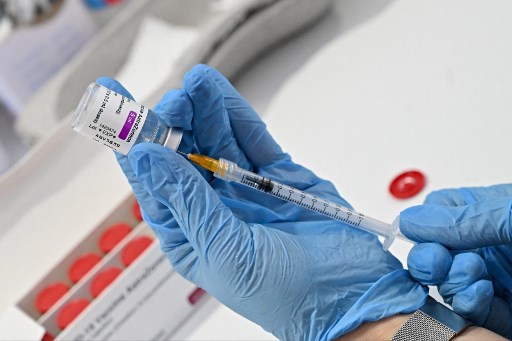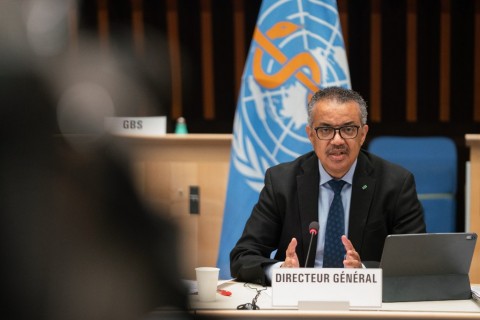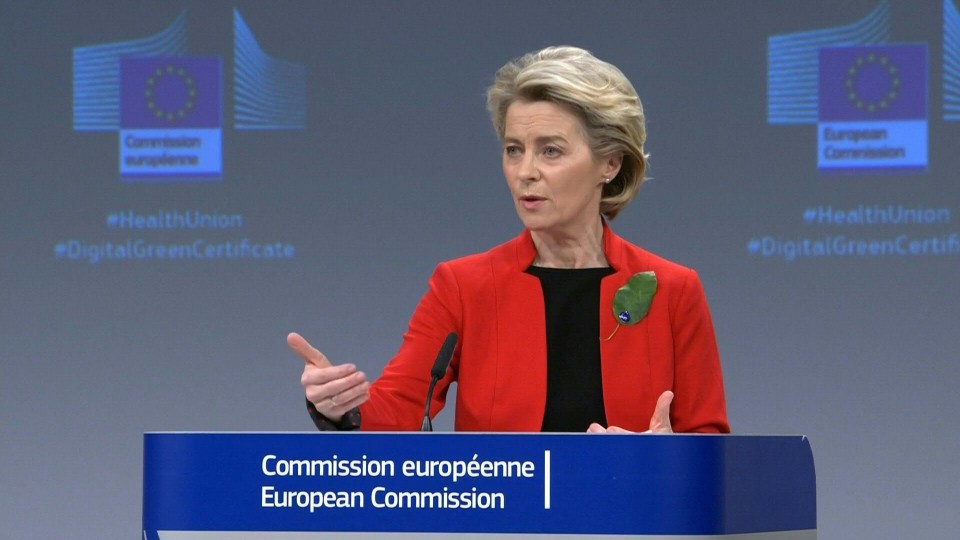
By Dr. Ma. Angela Leonor Aguinaldo
Contributor/ columnist
A few days ago the BBC made a startling revelation about the earnest efforts of developed nations such as the UK, US, and the European Union to block vaccine plans for developing countries. As reported, although these richer nations are posturing themselves to be at the forefront of pushing for global solutions to the worldwide pandemic, in truth there is a conscious and massive effort to block proposals to help developing countries to increase their vaccine manufacturing capabilities. This includes preventing possible technology transfers and lifting of patents and/or other intellectual property protection, that would otherwise enable developing countries to fill in the gap in the global supply and distribution of Covid-19 vaccines, which at present is only at a third of what is needed.
According to reports, most vaccines are produced in developed countries and are kept in general in these developed countries. United Nations Secretary-General Antonio Guterres even criticized these richer nations of creating stockpiles of Covid-19 vaccinations. This was confirmed by no less than the World Health Organization. It confirmed that everyday there is the growing gap in Covax distribution between developed and developing countries.

As UN health agency chief Tedros Adhanom Ghebreyesus said, “The gap between the number of vaccines administered in rich countries, and the number of vaccines administered through Covax is growing every single day.” And given the dire need for vaccinations in developing countries, developing countries are now pushing for equitable access to these vaccines as well as the right to produce these vaccines. However, richer nations such as the UK, US, and the European Union think that this is a bad idea. Not only being a mouthpiece for the big pharmaceutical companies, but also showing their own self-serving interests, these richer nations posit that sidestepping patents would allegedly hinder the initiatives to invest in future treatments for Covid-19 and other illnesses, and/or that it won’t exactly speed up production of vaccines but rather create confusion and undermine public confidence in vaccines, as well as in general undermine the global efforts to address the pandemic. On the other hand, we find those who wish to promote equitable access to vaccines as this is quintessential to prevent more cases and deaths around the globe and strengthen the global population’s immunity. The pandemic has undeniably highlighted the shortcomings of some developing countries to source and administer these vaccines. Thus, reaching out and helping these developing countries are believed to be the apt solution.
-Uphill battle-
In my honest opinion, this situation highlights the severe inequity and inequality happening across the globe in the time of Covid-19. On this macro or international level, we witness the uphill battle being fought by developing nations to have an equal share of the pie not only in the distribution of the vaccines but likewise in the production of the vaccines itself to fill in the gap in the overall global demand. Taking a few steps back to when the pandemic started until to this very point in time, we see the failures and incapacity of developing countries vis-a-vis their respective political as well as health and welfare systems to address the numerous concerns brought by Covid-19. I remember the country report I wrote on the Philippines and its responses to Covid-19 are mainly securitized and monopolized by the state, but these responses have been criticized as flawed and inadequate to address concerns. I could provide a recap of this report on another contribution but for purposes of the present topic, developing countries such as the Philippines neither have the capacity to address the overarching public health problems brought by the pandemic nor they have the sufficient economic resources to procure and secure the needed vaccines for their citizenry. This is especially the case when we talk about the different and specific logistical requirements of some vaccines available in the market. Some developing countries are even placed in more public debt and can become poorer than what they were when the pandemic began. What makes matters worse is that in the midst of a global situation when we expect a more equitable response, it would seem that developing countries receiving the short end of the stick has been quite premeditated. No less than officials from the United Nations and World Health Organization confirm the distribution inequality and unequal treatment of developed and developing nations, as well as the vast efforts being made to stop proposals from developing countries. This is nothing less of a display of hypocrisy and inequity in the time of pandemic.

At the outset, the entire report about this distribution inequality as well as the efforts of richer nations to “block” developing countries from a more equitable share of the pie in vaccine distribution and production reminds me of a favorite book. I remember the quite stirring plot of John Le Carre’s The Constant Gardener and the reality of the strong lobbying powers of these pharmaceutical companies to protect their respective interests. While we are not talking about conspiracy theories and the murder plot of the book, with the positions being forwarded by the UK, US and even the European Union, it won’t take a genius to know who truly is the one speaking in their respective positions. Isn’t it quite amusing to find these nations talking about patents, technology transfers, and incentives for future treatments as if they are personally involved in these processes and they are the ones at stake? Isn’t it also telling that by maintaining the status quo of having the global producing capacity for vaccines at a minimum, even when it could be much more, richer nations and the big players in the pharmaceutical industry hold bigger positions of power and influence on how the global response against the pandemic shall be.
-WHO: Unequitable distribution of vaccines, a moral outrage-
That being said, I think that calling out the shamelessness of these developed, richer nations is well deserved. As Tedros from the World Health Organization rightfully said it, “The unequitable distribution of vaccines is not just a moral outrage, it’s also economically and epidemiologically self-defeating.” Further, he correctly pointed out that “As long as the virus continues to circulate anywhere, people will continue to die, trade and travel will continue to be disrupted, and the economic recovery will be further delayed.” Given this scenario, I find it utterly hypocritical how these richer nations sugarcoat their vested interests in the situation. By claiming to have spent millions in aid or to be in the forefront in finding global solutions to the pandemic, while rejecting proposals for more equitable access to vaccine production and distribution, I cannot help but think that this is once again an exercise of the richer nations’ “white man’s burden” to lead the fight against Covid-19. We are back again to what I mentioned last time about “soft imperialism power”. By crowding out developing nations in the process of fighting the global pandemic, it would seem that these richer nations have undertaken the “burden” that only they could solve. Their positions do not only show a distrust of the “other” (developing) nations’ capacity to contribute to the global response, but it would also seem that they would like to be solely credited for whatever positive that would happen. Thus, this is an utter display of hegemonic power and influence.
If we truly think about it though, the proposal for other countries to produce vaccines is quite feasible. Big pharmaceutical companies would often have branches and production units around the globe. They can also mostly be found in the developing nations as well due to cheaper manufacturing and labor costs. Thus, it is feasible to implement distribution and production on the ground. There is therefore no truth to claims that initiatives to produce treatments and vaccines in the future would be compromised and confidence in the vaccinations can be lessened. These claims are truly unfounded because if they mobilize their own resources, then production and distribution can easily be done from all corners of the world. Furthermore, there is the possibility of partnering up with other organizations and companies in the same sector to produce more vaccines. This is not necessarily side-stepping patents but ensuring that global production and supply would meet the global demand for vaccines. Additionally, technology transfer agreements exist to ensure that the technology is rightfully transferred but the intellectual creation or the right to it is still left intact. Thus, I truly do not get why richer nations and pharmaceutical companies are blocking proposals for a more equitable share for developing nations. Developing nations at the end of the day have the responsibility too to contribute to the global solution. I hope developed nations do not allow their ego to get in the way of promoting and respecting equity and equality.
-Misplaced sense of entitlement –
This all boils down to white privilege — or the misplaced sense of entitlement to be first prioritized among the rest of the world. One could look into how the European Union wishes to be prioritized with respect to vaccine distribution in general. It was only lately when the European Union warned that it will prohibit the export of the vaccines to the UK and other countries until companies make good their promised deliveries to the bloc. This threat of embargo from the European Union would ultimately have a ripple effect across the globe. And quite frankly, this is not quite compatible with the benevolent and equitable stance they wish to posture against all of us. Yes, these nations might be richer and in general, more socially and economically well-off than the other nations in this world, but these don’t give them the right to be treated better or have a more privileged status than others. It takes a global effort to fight the pandemic and its unwelcomed effects. All of us regardless of country and color of skin have equal rights.
This displayed privilege is even more made deplorable if one factors here claims and reports about developing countries being the petri dishes of the big pharmaceutical companies in testing their vaccines and products. Haven’t we heard enough of reports of vaccination tests hiding under the cloak of vaccine propagandas in India, some African countries, and even Southeast Asian countries, which then led to either untimely deaths or lifelong side effects among test subjects, because pharmaceutical companies and richer countries find it better to make test subjects of developing nations rather than their own precious citizens? Assuming that these claims are true, it is totally despicable if developing countries are allowed to be lab rats in the entire process of developing future vaccines and treatments, and yet richer nations become first priority while poorer nations are denied the equitable right to participate and access these vaccines and treatments. Richer nations cannot have their cake and eat it too.
The World Health Organization has called for all countries to begin vaccinating within the first 100 days of the year, but as that deadline nears, 36 countries are still to receive a single dose. Sixteen of those are scheduled to receive their first doses through Covax within the next two weeks, but the other 20 countries are expected to miss out. UN agencies like UNICEF have already called these developed nations for action. They have called for a more equitable distribution. And yet, we have yet to see whether there would be a change in this inequitable and unequal situation. So far, what we have seen are a reinforced inequality and inequity on a global stage wherein richer nations as well as big pharmaceutical players prioritized their own privilege and other vested interests while compromising the welfare of other nations.
==============================================================
 The author, Dr. iur. Atty. Ma. Angela Leonor Aguinaldo, J.D., LL.M., writes a regular column/blog for eaglenews.ph. With her knowledge and expertise in international law, international criminal law, criminology, forensics and digital evidence, issues surrounding law and technology, as well as on ASEAN and EU matters, and her passion to help others understand these complex issues better, she will be analyzing current world issues and even give her take on pop culture. As can be gleaned from the title of her column/blog “The Knightfall Protocol“, “Angel” as her friends and loved ones know her, is a fan of the Arkham games and the caped crusader is her favorite superhero. For comments and suggestions, you can reach her at [email protected]
The author, Dr. iur. Atty. Ma. Angela Leonor Aguinaldo, J.D., LL.M., writes a regular column/blog for eaglenews.ph. With her knowledge and expertise in international law, international criminal law, criminology, forensics and digital evidence, issues surrounding law and technology, as well as on ASEAN and EU matters, and her passion to help others understand these complex issues better, she will be analyzing current world issues and even give her take on pop culture. As can be gleaned from the title of her column/blog “The Knightfall Protocol“, “Angel” as her friends and loved ones know her, is a fan of the Arkham games and the caped crusader is her favorite superhero. For comments and suggestions, you can reach her at [email protected]







